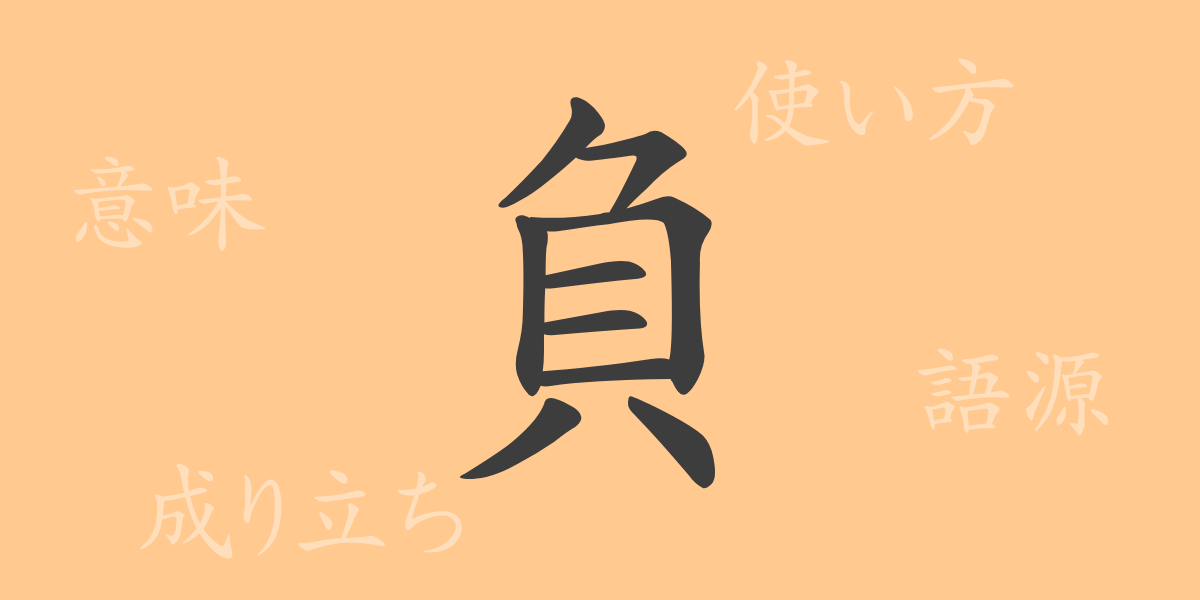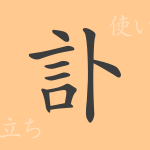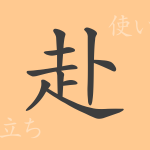In the Japanese language, there are numerous characters with profound meanings. The significance of these individual characters is rooted in their shapes and histories, closely tied to the daily lives of the Japanese people. This time, we focus on the 常用漢字(じょうようかんじ)(jouyou kanji) “負(ふ)(fu)” to delve into its etymology, contemporary usage, and even idioms and proverbs that feature this character, exploring the deep world it represents.
Etymology of 負(ふ)(fu)
The kanji “負(ふ)(fu)” can trace its origins back to ancient Chinese oracle bone script. Initially, it was a pictogram symbolically representing a person carrying something on their back. Over time, its shape was simplified and evolved into the current form “負(ふ)(fu)”. As the character suggests, it carries meanings such as bearing something, taking responsibility, and is used in various contexts.
Meanings and Usage of 負(ふ)(fu)
The kanji “負(ふ)(fu)” encompasses multiple meanings, including “to lose,” “to bear,” and “to take responsibility.” These range from the physical act of carrying something to losing in a competition, and even metaphorically referring to responsibilities and obligations. The meaning varies depending on the context, so understanding its precise usage is crucial.
Readings, Stroke Count, and Radical of 負(ふ)(fu)
The kanji “負(ふ)(fu)” also draws attention with its readings and structural elements.
- Readings: The on’yomi reading is “フ(fu),” and the kun’yomi readings are “ま.ける(ma.keru)” and “お.う(o.u).”
- Stroke Count: “負(ふ)(fu)” has 9 strokes.
- Radical: The radical of this kanji is “貝(かい)(kai),” which is shaped like a shell. Shells were used as a medium of value exchange, and this radical is often seen in kanji related to economic meanings such as wealth and debt.
Idioms, Proverbs, and Phrases Using 負(ふ)(fu)
There is a wealth of idioms, proverbs, and phrases in Japanese that include “負(ふ)(fu).” For example, “負け犬(まけいぬ)(makeinu)” refers to someone who has lost in a competition but can also denote someone who is not socially successful. “重荷(おもに)(omoni)を負う(おう)(ou)” means to bear a heavy responsibility or pressure, and “負の遺産(いさん)(isan)” refers to problems or debts inherited from previous generations. These expressions reflect Japanese values and social structures.
Summary of 負(ふ)(fu)
The kanji “負(ふ)(fu)” has evolved in shape and meaning over time, yet it continues to be a word deeply rooted in the lives of the Japanese people. Used in various situations, from expressing victory and defeat to indicating responsibilities and obligations, this character symbolizes the richness and complexity of the Japanese language. Though seemingly simple, it carries a deep history and culture within it.

























